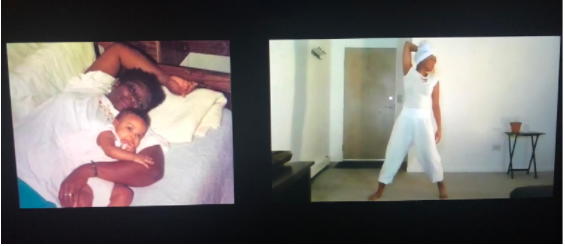
Photo: Samira Kassem
The Illinois Wesleyan community virtually welcomed Minnesota-based nonprofit arts company Brownbody on Monday, January 18.
The group was featured as part of the University’s annual MLK Teach-In, an event made possible by a Healing Illinois grant from the Illinois Department of Human Services in partnership with The Chicago Community Trust.
The grant was written by Assistant Professor of Theatre Arts Michelle Gibbs who also serves as the board of directors chair.
“The company has developed a teaching curriculum in anti-racism and African diasporic cultural practices that will help IWU educators address how to support, through creative practice, BIPOC (Black, Indigenous, and people of color) students and the larger BIPOC campus community,” Gibbs said.
The company hosted an anti-racism and racial justice discussion workshop in the morning that welcomed faculty and staff of the university.
The workshop featured the founder of the company Deneane Richburg as well as associate artistic director Lela Aisha Jones.
Later in the evening, members of the university were invited to an all-virtual performance via Zoom.

Photo: Samira Kassem
Performers Roobi Gaskins, LaJune McMillian, Chelsea Ridley, Michael Young and Richburg herself first performed their piece entitled ‘Tracing Sacred Steps: Embodied Ancestral.’
The piece incorporated photographs, spoken word, modern dance and music as each artist performed in different physical spaces that were brought together over zoom.
Each performer displayed a photograph of an ancestor who they channeled throughout the two-week process of developing and learning the piece.
“Everything was prepared through zoom so it was definitely a very different way to learn a piece,” Ridley said.
“It’s been a very grounding, loving, holding space that I think the piece that we shared today encompassed,” Richburg said, responding to a question from Action Research Center coordinator Bevin Chobain on the emotional aspect of the work. Following their live performance, the group shared a compilation of other performances before COVID-19. These performances featured artists figure skating as well as dancing.
“I am really interested in how we bring the nuance and complexity of blackness onto the ice,” Richburg said.
“I’ve opted to do this work in more of a theatre-based and modern dance framework because those are more developed than traditional skating spaces.”

Photo: Samira Kassem
Gibbs said she was pleased to be able to share the work of Brownbody with the IWU community through her work with the Healing Illinois grant.
“Brownbody creates a sense of healing for its artists and audiences who have faced racial trauma,” she said.
